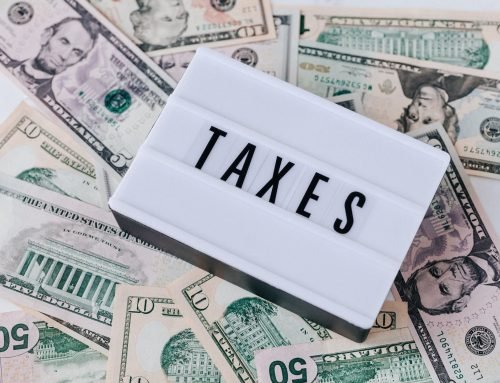More improvement may be in store for the economy & the stock market.
Will the economy & the bull market make further strides next year? On both Wall Street and Main Street, 2013 has turned out better than many analysts expected. Will the recovery gain additional momentum in 2014, and will stocks climb even higher?
Optimism is widespread. Do you remember how gloomy things got at the end of 2012? Fears about imminent economic damage from the fiscal cliff and sequester cuts were pervasive, and bears sensed that stocks might retreat. The economy and the market withstood these anxieties and others. Look at last week for another example. Hours after the Federal Reserve announced it would scale back its asset purchases next year, the Dow closed at a fresh all-time high of 16,167.97. December 18 was the index’s best day in more than two months.1
Weren’t investors supposed to be disappointed when the taper occurred? Let’s just say the timing was right. In August, just the hint of an oncoming taper resulted in a 5.6% dip for the Dow. Months ago, some investors were still questioning the strength of the recovery. Today, there is less to question. As Wells Capital Management chief investment strategist James Paulsen commented in USA TODAY, the Fed’s move amounted to a “vote of confidence in the future,” mirroring the confidence on Wall Street.1
The taper to Quantitative Easing (QE3) was relatively small ($10 billion) and came with a pledge to hold interest rates down “well past the time” unemployment declines to 6.5%. So the Fed likely intends to maintain its accommodative stance for some time, which is just fine by investors. (In fact, the Wall Street Journal says that only two of ten Fed officials believe the central bank will raise interest rates next year.) The Fed’s monetary policy has been instrumental to the stock market’s record-setting performance, and it isn’t going away – which is good news for 2014.1,2
Easing isn’t the only thing powering this bull market. The unemployment rate fell to 7.0% in November, a 5-year low. It was 7.9% in January. The economy is projected to generate 2,269,500 new jobs in 2013, and assuming it does, this will be the fourth straight year with a gain in annual job creation. The Fed sees Gross Domestic Product (GDP) improving more than half a percentage point to 2.8-3.2% in 2014 and growth of 3.0-3.4% for 2015. Housing starts have doubled in the past four years and rose 22.7% in November to a 5½-year peak. The most recently released Case-Shiller Home Price Index (September) showed a 13.3% overall annual gain in home values, and even though year-over-year existing home sales declined in November for the first time in 29 months, the National Association of Realtors said existing home prices had improved 9.4% in a year.2,3,4,5,6,7
The global outlook may also improve. Economists at China’s National Academy of Economic Strategy feel that the People’s Republic of China (PRC) will maintain GDP of about 7.5% this year and see as much as 7.8% growth in 2014. Citing Eurostat and Bloomberg research, Money reports that the eurozone economy is projected to grow about 1.4% per year for the next 3-5 years, notably better than the annual 0.2% pace of expansion recorded so far in this decade.4,8
No one is saying there won’t be challenges or surprises next year, and stock market gains in 2014 may not approach those we have seen in 2013. That said, many indicators are signaling that next year could hold considerable promise for both Wall Street and Main Street.
Next Step: Talk it over
Disclosures:
Gross Domestic Product (GDP) is the monetary value of all the finished goods and services produced within a country’s borders in a specific time period, though GDP is usually calculated on an annual basis. It includes all of private and public consumption government outlays, investments and exports less imports that occur within a defined territory.
Quantitative Easing (QE3) is a government monetary policy occasionally used to increase the money supply by buying government securities or other securities from the market. Quantitative easing increases the money supply by flooding financial institutions with capital in an effort to promote increased lending and liquidity.
The Dow Jones Industrial Average (the ‘Dow’) is comprised of 30 stocks that are major factors in their industries and widely held by individuals and institutional investors.
This material was prepared by MarketingLibrary.Net Inc., and does not necessarily represent the views of the presenting party, nor their affiliates. All information is believed to be from reliable sources; however we make no representation as to its completeness or accuracy. Please note – investing involves risk, and past performance is no guarantee of future results. The publisher is not engaged in rendering legal, accounting or other professional services. If assistance is needed, the reader is advised to engage the services of a competent professional. This information should not be construed as investment, tax or legal advice and may not be relied on for the purpose of avoiding any Federal tax penalty. This is neither a solicitation nor recommendation to purchase or sell any investment or insurance product or service, and should not be relied upon as such. All indices are unmanaged and are not illustrative of any particular investment.
Citations.
1 – usatoday.com/story/money/markets/2013/12/18/five-reasons-why-stocks-rose-despite-taper/4114075/
2 – blogs.wsj.com/economics/2013/12/18/fed-projections-see-no-rate-increase-until-2015/ [12/18/13]
3 – ncsl.org/research/labor-and-employment/national-employment-monthly-update.aspx [12/19/13]
4 – money.cnn.com/2013/12/09/news/economy/economic-outlook-2014.moneymag/index.html [12/10/13]
5 – reuters.com/article/2013/12/18/idUSLNSINE9BF20131218 [12/18/13]
6 – bostonglobe.com/business/2013/12/01/five-financial-trends-thankful-for/3FyGVa4OpIZNKlNSzHwIbO/story.html [12/1/13] 7 – mortgagenewsdaily.com/12192013_existing_home_sales.asp [12/19/13] 8 – usa.chinadaily.com.cn/business/2013-12/10/content_17162933.htm [12/10/13]
1-231890



